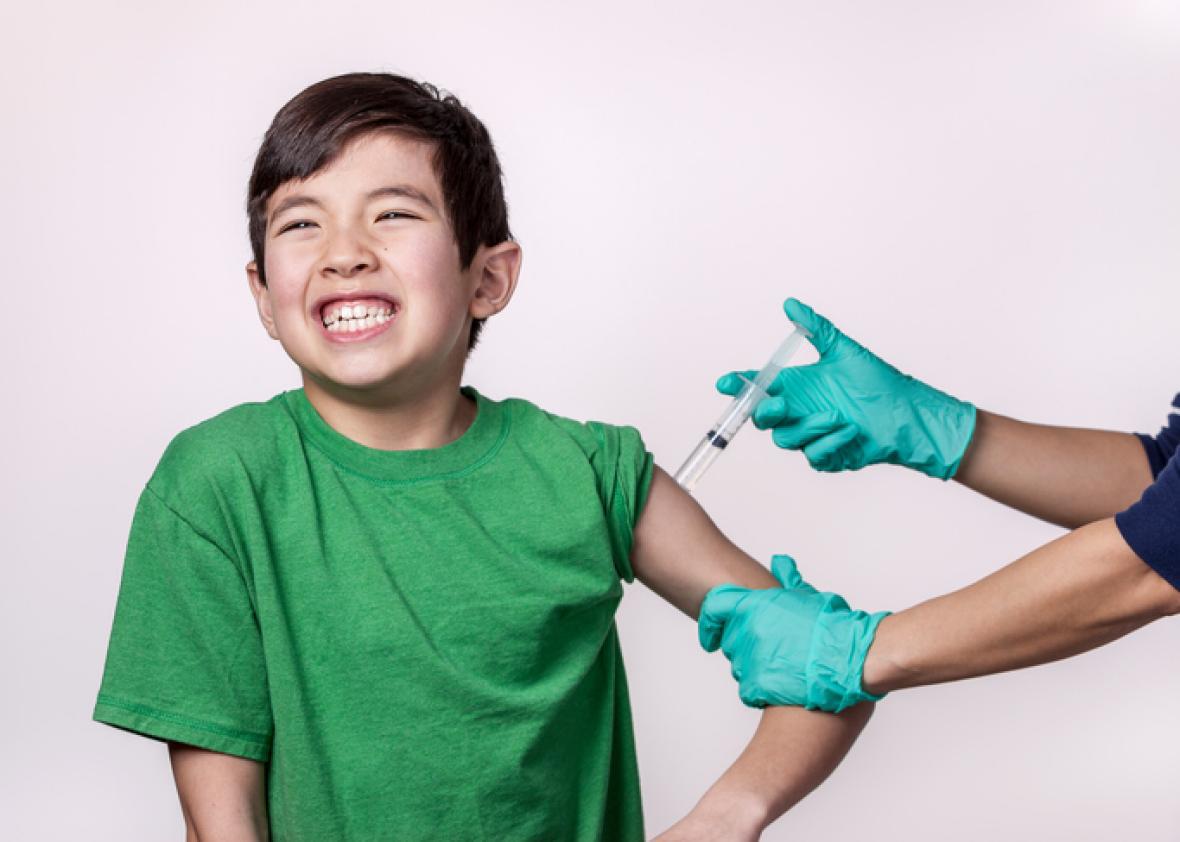Rates of cancers connected to the human papillomavirus (HPV) are rising in the U.S., the Centers for Disease Control and Prevention announced in a report on Thursday. There were an average of 38,793 annual cases of HPV-related cancers in the country between 2008 and 2012, a 16 percent increase from the average of 33,369 cases diagnosed each year from 2004 to 2008.
Of the new cases of HPV cancers that cropped up annually from 2008 to 2012, the majority were oral cancers in men and cervical cancers in women, about 12,600 and 11,700 respective cases of each. (HPV cancers also present in the genitals of both sexes, as well as the anus, neck, and throat.) The CDC reports that 80 percent of the new cancer diagnoses in the study were direct results of HPV infections; the majority of which could have been prevented by the HPV vaccine, which protects against three of the four strains of the virus.
This latest report gives new urgency to calls for increased adoption of the HPV vaccine, where the U.S. still lags far behind many other nations. Here, in 2014, 60 percent of girls aged 13-17 had gotten one dose of the vaccine; just 40 percent had gotten the complete set of three doses. The 2014 rates among boys were even lower: 42 percent and 22 percent, respectively. The rate of completely vaccinated girls in Australia is 75 percent; in the U.K., it’s 84 percent; and in Rwanda, it’s 93 percent.
HPV rates among teenage girls have fallen by two-thirds since doctors began administering the vaccine about a decade ago, the CDC announced earlier this year. It may take some time for boys to catch up, since the vaccine was initially marketed to and recommended for girls. In 2011, when a new study definitively linked HPV to oral cancers, the CDC started recommending it for all boys, too. But it’s often been sold to boys and their parents as a public-health good—that they should get vaccinated to protect the women from whom they might contract it and to whom they might pass it. The new CDC report gives parents a more direct reason to protect their boys against HPV: Men are more than four times more likely than women to get mouth and throat cancers, and HPV puts them at a much higher risk.
The CDC recommends the vaccine for all 11- and 12-year-olds since their immune responses are high, they’re going to the doctor for other shots anyway, and most are not yet sexually active. But health professionals have said that the biggest contributor to the United States’ dismal record of HPV vaccination is our head-in-the-sand approach to teens and sex. As much as American parents fear cancer and call for a cure, many fear their children’s burgeoning sexuality even more.
“In order to increase HPV vaccination rates, we must change the perception of the HPV vaccine from something that prevents a sexually transmitted disease to a vaccine that prevents cancer,” Electra Paskett, co-director of the Cancer Control Research Program at The Ohio State University, told Agence France-Presse in response to the CDC’s new HPV cancer numbers. “Every parent should ask the question: If there was a vaccine I could give my child that would prevent them from developing six different cancers, would I give it to them?”
That’s the thinking behind a new commercial from Merck. In it, kids who went on to develop cancer (actors, not real kids with cancer) ask their parents through the camera if they knew about the HPV vaccine. It’s a heart-wrenching video that hits on the absurdity of denying a child a proven method of cancer prevention because of some abstract fear of sex. If the CDC’s appeals to numbers and logic can’t convince parents to protect their kids, maybe a child actor on a big pharma ad will have better luck.
